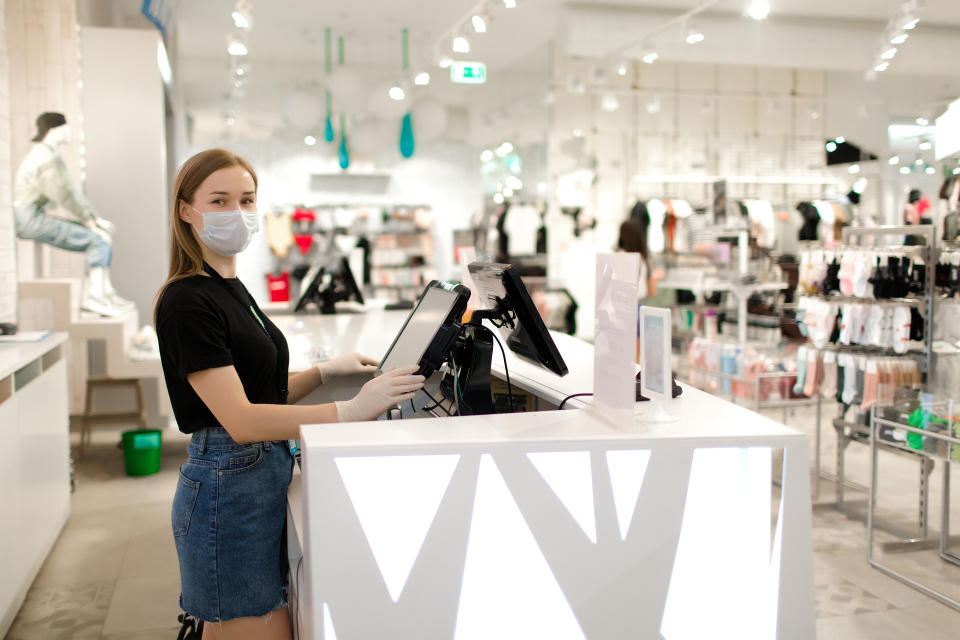Retail M&A Expected to Heat Up Through the Pandemic

After a steep decline in merger activity around the time the pandemic unfolded last March, dealmaking rebounded in the fourth quarter as investors looked to expand their portfolios and buy distressed retail assets at affordable price tags. That’s only expected to look up for retail in 2021, experts said.
The high-profile bankruptcies of Brooks Brothers, J.C. Penney, Barneys New York and others demonstrated some of the appetite for such spending. Brooks Brothers was sold last year for $325 million to a tie-up between licensing company Authentic Brands Group LLC and mall operator Simon Property Group, while J.C. Penney’s retail operations went to a partnership between Simon Property and Brookfield Asset Management. ABG also bought Barneys.
More from WWD
Those types of deals demonstrate investors’ interest in fashion retail assets, particularly from companies viewed as having valuable brands and malleable business models to build a stronger online business, M&A experts said.
“You’ve seen an outsize amount of companies go bankrupt in the fashion space in 2020. I expect that trend to continue in 2021, as stimulus has withdrawn and the rollout has been a little bit slower than some people may have thought,” said Zachary Turke, a partner in Sheppard Mullin’s corporate practice.
“If you’re a buyer, that’s really going to present some great opportunities for you,” he said. “I think you’re going to see cash-rich buyers go on a spending spree, both inside and outside bankruptcies, where they try to consolidate their positions.”
Merger values had plummeted some 80 percent as the initial round of lockdowns began, but the activity picked up again toward the end of the year to close 2020 at a 29 percent decline in M&A values overall in the Americas, according to a December report by the consulting group EY.
The group’s report anticipated that companies in the consumer sector, which saw a 16 percent decline overall in dealmaking in 2020, are likely to be part of an upcoming increase in M&A activity in 2021, according to the report.
The markets more broadly have indicated growing enthusiasm about the economic recovery, as vaccine deployment expands across the U.S., experts said, though that has so far been somewhat muted in the retail and fashion space.
But investors who had initially balked at fashion retailers are watching retail brands with strong online capabilities, as well as luxury labels that are showing signs of revival as consumers of high-end goods turn on spending.
The past year has offered a picture of that stark evolution, Turke said.
“When you don’t know what revenue is, you can’t value businesses, which means you can’t really trade in them,” he said. “So dealmaking activity came to a halt in the second quarter. After that, the third quarter was better than the second quarter, and then the fourth quarter was pretty robust in terms of number of deals in the market. So it was really a tale of two years.”
The bankruptcies of retailers also offer opportunities for investors seeking to revitalize businesses and sell them for a premium, said Neil Saunders, managing director of the retail practice at data intelligence firm GlobalData.
“I think [investors are interested] where some retailers go bankrupt, either because the liquidity isn’t there or the cash flow isn’t there, but there’s still an underlying business model that’s reasonable,” Saunders said. “A lot of investors are very interested in those brands from the perspective of how they can go in and reengineer the business.
“There’s definitely an opportunity there for savvy investors to come and buy at a low price, a brand that they can then reinvent and hopefully then sell at a higher value, once they’ve done that reinvention,” he said.
The law firm Kirkland & Ellis, which has represented a number of major retailers in bankruptcies including Barneys, J.C. Penney and Neiman Marcus, is also among the top law firms advising on deals in the technology, media and telecommunications sectors, according to a report Tuesday by GlobalData.
Meanwhile, regulators have continued to scrutinize deals for competition issues. On Tuesday, the U.K.’s Competition and Markets Authority said that the firm TDR Capital and the gas station billionaire brothers Zuber and Mohsin Issa’s purchase of the Asda Group grocery store chain from Walmart had raised some “local competition concerns in relation to the supply of road fuel.”
The purchasers have to now provide suggestions on addressing those concerns, the CMA said Tuesday.
Sign up for WWD's Newsletter. For the latest news, follow us on Twitter, Facebook, and Instagram.

 Yahoo Finance
Yahoo Finance 